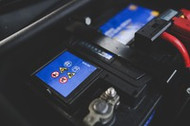Why Does My Car Battery Keep Dying?
16th Jun 2016

The battery plays an important role in the function of modern-day automobiles. Featuring a positive and negative terminal, it allows the flows of electrons through the wires and ultimately to the vehicle's electrical systems, including the starter and spark plugs. But like all batteries, car batteries hold a finite charge. And once this charge is depleted, the car will fail to start.
The good news is that most cars and automobiles are equipped with an alternator that recharges the battery as it drives. Even with this alternator, however, some batteries may have trouble holding a charge. So if you're faced with a battery that keeps dying, you should read the following to assist with diagnosing the problem.
Short Driving
One possible reason why your car battery isn't holding a charge is because you aren't driving it enough -- or you aren't driving it for long enough during each trip. As mentioned above, the alternator works to recharge the battery when the vehicle is in motion. But short and/or infrequent driving prevents this process from occurring, leaving the battery weak. Furthermore, the most demanding function of the battery occurs when the car is first started, so constantly starting your car will quickly deplete the battery of its power.
Faulty Alternator
Alternators, like most components in a car, will eventually go bad. A typical alternator will last for about 100,000 to 150,000 miles, or 7 years, at which point it must be replaced. If you haven't replaced your alternator since then, it's probably a good idea to go ahead and do so. Alternators are relatively cheap and easy to install, making this a quick fix for a battery that won't hold a charge.
Extreme Heat or Cold
A lesser known reason why car batteries fail to hold a charge is because they are exposed to extreme heat or cold. Extreme temperatures such as this stress the battery's internal components, including the acid, increasing the likelihood of failure. So if you're having trouble starting your car during the hottest day of summer or coldest day of winter, the reason could be attributed to extreme temperature exposure. This ultimately shortens the life of the battery, forcing the driver to replace it.
Corrosion Around Terminals
If you are having trouble keeping your car's battery charged, check both the positive and negative terminals to ensure they are clean and free of corrosion. Over time, rust may form on the terminals, restricting the flow of electricity. And once the circuit is disrupted, your car will no longer receive electricity from the battery. Cleaning the terminals should resolve this problem, however, allowing the circuit to complete itself once again.

